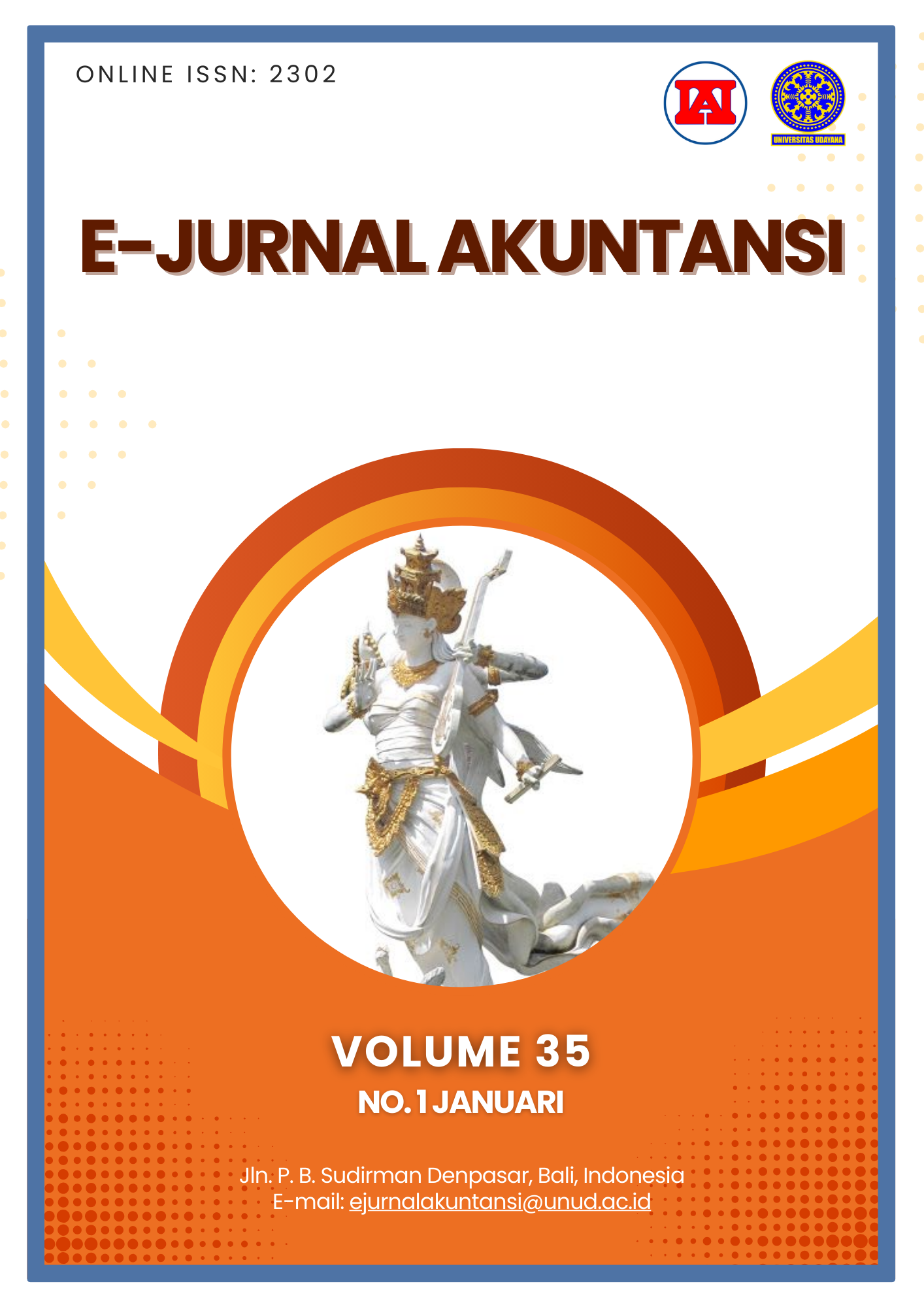A Contextual Analysis and Critical of e-Government as a Form of Public Accountability and Equitable Public Service Delivery
Abstract
The purpose of this study is to critically analyze and contextualize the implementation of e-government in Situbondo Regency. E-government is adopted by the government with the belief that it can strengthen public accountability and enhance the distribution of public services. However, a significant portion of citizens remains unable to access e-government services. The research uses a contextual analysis approach combined with in-depth interviews to explore key ideas relevant to the analysis. The bureaucratic reform in the public policy system lacks humanistic values, diminishes the spirit of public service, and does not reflect good governance. E-government while seen as a technological revolution, faces the challenge of the digital divide, which silences citizens' rights due to a lack of digital literacy. As a result, public accountability is not effectively established through e-government.
Keywords: E-Government;, Accountability, Digital Dividen, Equitable Public Services
Downloads
References
Ambarwati, N., Firdaus, M., & Widaninggar, N. (2020). Success Factors of Accounting Information System in PT Kuncimas Niagatama Banyuwangi. MBA-Journal of Management and Business Aplication, 3(1), 254–264.
Barzelay, M. (1997). Researching The Politics of New Public Management Changing The Question, Not The Subject. The Summer Workshop of the International Public Management.
Bélanger, F., & Carter, L. (2009). The impact of the digital divide on e-government use. Communications of the ACM, 52(4), 132–135. https://doi.org/10.1145/1498765.1498801
Budiati, A. (2005). The Role of Bureaucratic Reform and E-government in Eradicating Corruption and Improving Public Service Delivery in Indonesia (A Strategic Action to Create Harmonious Society in Indonesia. Network of Asia-Pacific Schools and Institutes of Public Administration and Governance (NAPSIPAG) Annual Conference.
Bungin, B. (2020). Social Research Method (Post-Qualitative). Kencana.
Burrell, G., & Morgan, G. (1979). Sociological Paradigms and Organizational Analysis. Gower.
Chua, W. F. (1986). Radical Developments in Accounting Thought. Accounting Review, 601–632.
Creswell, J. W. (2013). Steps in Conducting a Scholarly Mixed Methods Study. University of Nebraska-Lincoln.
Damanik, M. P., & Purwaningsih, E. H. (2018). Kesiapan E-Government Pemerintah Daerah Menuju Pengembangan Smart Province (Studi pada Pemerintah Kabupaten Mandailing Natal, Provinsi Sumatera Utara). Jurnal Studi Komunikasi Dan Media, 22(2), 185. https://doi.org/10.31445/jskm.2018.220207
Dernhart, J. V., & Dernhart, R. B. (2003). The New Public Service: Serving, Not Steering. M.E. Sharpe.
Fairclough, N. (2013). Critical discourse analysis: The critical study of language. Routledge.
Goudzwaard, B. (1984). Idols of Our Time. Inter-Varsity Press.
Hamilton, S. (2002). Maximizing Your ERP System A Practical Guide Manager. McGraw-Hill.
Harihara, S. K., & Basden, A. (2008). E-government: A Philosophical Analysis. 6th International Conference on E-Government (ICEG).
Heeks, R. (1998). Information Age Reform of the Public Sector: The Potential and Problems of IT for India. SSRN Electronic Journal. https://doi.org/10.2139/ssrn.3540073
Heeks, R. (2002). Information Systems and Developing Countries: Failure, Success, and Local Improvisations. The Information Society, 18(2), 101–112. https://doi.org/10.1080/01972240290075039
Heeks, R., & Bailur, S. (2006). Analysing eGovernment Research: Perspectives, Philosophies, Theories, Methods and Practice. SSRN Electronic Journal. https://doi.org/10.2139/ssrn.3540045
Ismail, S. (2008). Analisis wacana kritis: Alternatif menganalisis wacana. Jurnal Bahas Unimed, 69TH, 74626.
Kamayanti, A. (2017). Metodologi Konstruktif Riset Akuntansi Membumikan Religiositas. Yayasan Rumah Peneleh.
Kamuli, S. (2011). Critical Review Reformasi Paradigma Administrasi (Tulisan Prof. HA Djadja Saefullah,. Ph. D). Jurnal Inovasi, 8(04).
Kawabata, M. K., & Camargo, A. S. (2023). E-Government Innovation Initiatives in Public Administration: A Systematic Literature Review and a Research Agenda. Administration & Society, 55(9), 1758–1790. https://doi.org/10.1177/00953997231185847
Klinger, D. E., & Nalbadian, J. (1985). Public Personnel Management: Contexts and Strategies. Prentice-Hall, Inc.
Legi, H. V., Rawis, J. A. M., Simanjuntak, S., & Oentoe, F. J. A. (2020). Model Implementasi e-Government di Dinas Pendidikan dan Kebudayaan Kota Manado. Jurnal Studi Guru Dan Pembelajaran, 3(2), 212–228. https://doi.org/10.30605/jsgp.3.2.2020.333
Longford, G. (2002). Rethinking E-Government: Dilemmas of Public Service, Citizenship and Democracy in The Digital Age. The Workshop on Public Sector Innovation.
Mahmudi. (2010). Manajemen Kinerja Sektor Publik (Edisi 2). UPP STIM YKPN.
Miller, D., & Dunn, W. (2006). A Critical Theory of New Public Management. University of Pittsburg.
Osman, M., Gallhofer, S., & Haslam, J. (2021). Contextualising and critically theorising corporate social responsibility reporting: Dynamics of the late Mubarak Era in Egypt. Critical Perspectives on Accounting, 74, 102166. https://doi.org/10.1016/j.cpa.2020.102166
Persson, A., & Goldkuhl, G. (2010). Government Value Paradigms—Bureaucracy, New Public Management, and E-Government. Communications of the Association for Information Systems, 27. https://doi.org/10.17705/1CAIS.02704
Ritzer, G., & Goodman, D. J. (2004). Classical Sociological Theory (4th Editio). McGraw-Hill.
Saefullah, D. (2002). Reformasi Paradigma Administrasi. Pascasarjana Universitas Padjadjaran Bandung.
Sahay, S., & Walsham, G. (1995). Information technology in developing countries: A need for theory building∗. Information Technology for Development, 6(3–4), 111–124. https://doi.org/10.1080/02681102.1995.9525264
Salsabila, S., Zetra, A., & Putera, R. E. (2022). Penerapan E-Government Dalam Pelayanan KTP Pada Dinas Kependudukan dan Pencatatan Sipil Kota Padang. Jurnal Ilmu Administrasi Negara ASIAN (Asosiasi Ilmuwan Administrasi Negara), 9(2), 314–324. https://doi.org/10.47828/jianaasian.v9i2.65
Wahab, R. A., & Arsyad, A. (2015). Studi Implementasi E-Government di Daerah Perbatasan. Jurnal Pekommas, 18(1), 1–14. https://doi.org/https://doi.org/10.30818/jpkm.2015.1180101
Widaninggar, N. (2013). Value Added Implementasi Enterprise Resource Planning (ERP). Jurnal Akuntansi Dan Manajemen, 10(2), 306–317.
Widaninggar, N. (2022). Employing Notonagoro semiotics in deconstructing public sector organization performance. International Journal of Religious and Cultural Studies, 4(1), 75–92. https://doi.org/10.34199/ijracs.2022.04.08
Widaninggar, N., Ganis Sukoharsono, E., Purwanti, L., & Widya Prihatiningtias, Y. (2023). The Use of Bhuppa’ Bhabbhu Ghuru Rato Philosophy to Strengthen the Performance Accountability of Government Institutions. KnE Social Sciences. https://doi.org/10.18502/kss.v8i9.13412
Widaninggar, N., Sukoharsono, E. G., Purwanti, L., & Prihatiningtias, Y. W. (2024). Conceptual reconstruction of evaluation guidelines for government performance accountability: Notonagoro Semiotics. TEM Journal, 13(1), 830–839. https://doi.org/10.18421/TEM131-85
Wijaya, J. H., Yunanto, S. E., Setyowati, Y., & Supardal, S. (2022). E-partisipasi Masyarakat dalam Pelaksanaan E-government di Indonesia Tahun 2003-2020. Jurnal Administrasi Pemerintahan Desa, 3(1), 37–53. https://doi.org/10.47134/villages.v3i1.27
Wilson, F. A. (1997). The truth is out there: the search for emancipatory principles in information systems design. Information Technology & People, 10(3), 187–204. https://doi.org/10.1108/09593849710178207

This work is licensed under a Creative Commons Attribution-ShareAlike 4.0 International License.

















